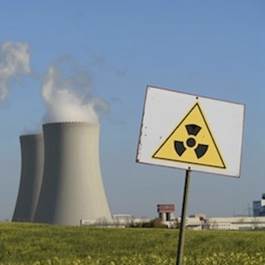
Tackling climate change: Greener energy or a new economic system?
by Anna Lindbach
In 2017 it is hard to imagine a world without massive production, advanced technology. Still, the effects of human activity are clearly visible on our environment and the planet. Can the effects of climate change be solved with more advanced technology, or is global warming a bigger issue that needs a new reform in our sociological and economical structure?
The consequences of human activity on the environment are clearly visible. Higher temperatures are leading to melting ice caps, floods, deforestation and other natural disasters and a large number of Europeans is open to government spending on more sustainable and renewable energy. Wanting to move away from oil and other non-sustainable energies, they are clearly feeling that the threat is real and needs to be handled. The question, however, is whether or not more investments in greener technology can be the answer to the biggest threat the Earth is facing today.
According to Buttel (2000), who is offering a more positive outlook on the climate crisis than a lot of other academics, there is no need for an enormous change in people’s consumptions and types of production. In fact, modernisation and economic growth in a capitalist system can be benefiting in fighting environmental issues if governments choose to spend more in developing greener forms of energy. A direct example of this could be the development of better solar energy or newer technologies promoting less CO2 emissions such as bio-diesel. We can see some attempts in preventing global warming, with environmental conferences involving state leaders and new policies against CO2 emission. However, regarding the speed that the temperatures are raising today, it would need bigger involvement across the globe from different actors, non-state as well as national projects, to actually turn this around.
This brings up the issue of whether or not climate change has gone too far to be saved by technological advancement. According to the Guardian, the World Health Organisation says air pollution due to CO2 emissions are the cause of death among 1.7 million children under the age of 5. In the same article, they discuss a research showing that global warming and climate change is taking more human lives than malaria and HIV combined. With these facts, it is harder to defend the argument that more advanced technology will be the solution, and instead turning towards a change in our economic system. The treadmill theory offered by Alan Schnaiberg (1980) argues that the industrialization and the rapid economic growth caused by capitalism are the main cause of rising temperatures around the globe. To solve global warming and prevent migration and loss of animal life caused by climate change, there is a need for a change in the technology of production and economic system. In other words, we need to move away from the capitalist system we are in today and find a way of growth, both economical and sociological, that is a lot more eco-friendly than the system we have today. This theory might seem more pessimistic, but in some ways more suitable when considering the status of the Earth and its atmosphere today. This is, however, a theory that needs further developing and more than anything it needs a realistic view on how we shall put it in place in the 21st century.
As of right now, it might seem easier to make use of the massive growth we have seen in technology and use it to develop a more sustainable and greener economy than the one we are living in today. No matter which theory is chosen to attack the climate crisis, the question to be asked is whether or not the human population is aware of the severe and catastrophic consequences we are facing, and if they are willing to spend more on saving the environment and less on making profit.
References
Buttel, F. (2000). Ecological modernization as social theory. Geoforum, 31(1), pp.57-65.
Carrington, D. (2017). Climate change impacts are already hitting us, say Europeans. The Guardian [Accessed 9 Mar. 2017].
Carrington, D. (2017). Pollution responsible for quarter of deaths of young children, says WHO. The Guardian [Accessed 9 Mar. 2017].
Schnaiberg, A. (1980). The environment. 1st ed. New York: Oxford University Press.

0 Comments